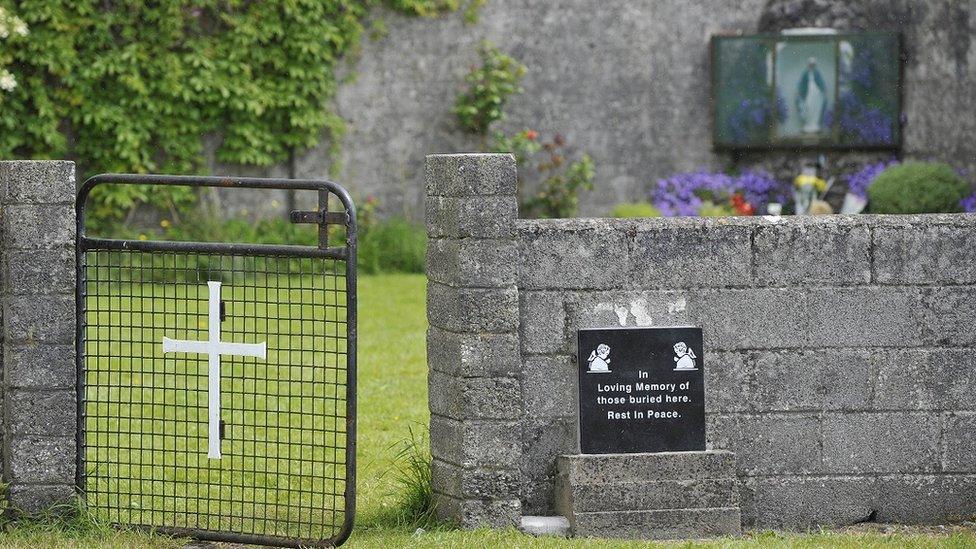Bethany Home survivors call for state and Church apologies
- Published
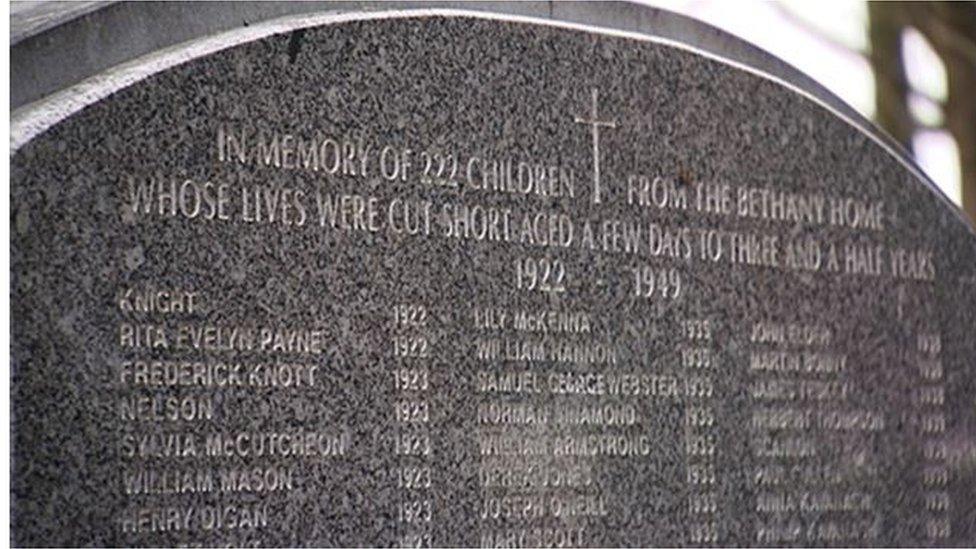
Two survivors of the Bethany Home in Dublin have called for an apology from the Irish state and Church of Ireland for their ill-treatment.
James Fenning, 78, who lives in County Antrim, and Paul Graham, 80, based in Sydney, said their lives have been blighted.
The home, which closed in the 1960s, was a place for unmarried Protestant mothers and their children.
It was run by a committee of Protestant clergy and lay people.
Mr Fenning and Mr Graham, who were both adopted from the home by families in Northern Ireland, met for the first time in an emotional meeting in Belfast on Saturday.
They said they each felt uplifted to have found each other to share their experiences.
Both men have a condition they attribute to severe malnourishment as infants.
Mr Fenning said he was neglected when "nursed out" to a home with 20 children in return for 15 shillings, while Mr Graham said he was emotionally damaged by several failed adoptions arranged by Bethany Home.
James Fenning calls for an apology over Bethany Home
They said the Irish government had "discriminated" against them as Protestants in failing to offer redress for those who lived at the home.
The Bethany Home was excluded from the Irish government's residential institutions redress scheme because it was deemed "not to qualify" since it was a home for mothers and children.
Mr Fenning and Mr Graham also want an apology from the Church of Ireland as they are convinced it played a key role in the home, but the Church strongly denies this.
It said it neither ran nor managed the home.
The Bethany Home Survivors Group '98 argue the church consigned women and children to the home.
In 2010, it also received a letter from Ireland's Department of Justice, which appeared to cast doubt on the Church's claim that the home was completely independent of it.
"The Church of Ireland denies all responsibility," said Mr Fenning, who left the home when he was about four.
"The Dublin government don't think we're fit to get redress, yet all the Catholic homes got redress, so is it discrimination against Protestants?"

Bethany survivors campaign for compensation
An estimated €1.5bn was paid out to historical abuse victims in the Republic as part of a financial redress scheme set up in 2009 following a government inquiry.
However, none of that money has gone to people who say they were ill-treated at the Bethany Home.
The Bethany is included in a new inquiry - the Commission of Investigation into Mother and Baby Homes - set up in 2015 following allegations about the deaths and burial of 800 babies in Tuam, County Galway.
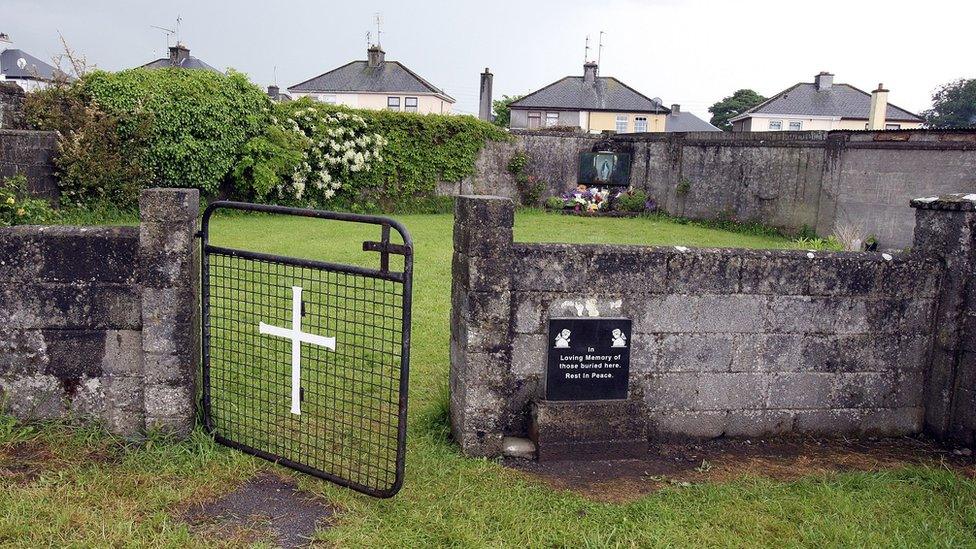
A shrine in Tuam, County Galway dedicated to babies buried on the site of a former mother-and-baby home
The commission is due to submit its final findings in February 2020.
A Department of Education spokesperson said the original redress scheme had been closed to new applications since September 2011 and would not be reopened.
The spokesperson said the scheme was "intended to deal with a very particular circumstance, namely, the abuse of children that occurred while the state was acting to a significant degree in loco parentis, where children had been removed by the state from their parents and placed out of their protection".

He added: "If we got a bit of honesty from the Church of Ireland, from the Dublin government, to say 'we hold our hands up, you were cruelly treated in the Bethany home', that would suffice."
Adopted by a wealthy Belfast family in 1944, Mr Graham ran away from his home at the age of 14 to join the Royal Marines and later became an alcoholic because of childhood trauma.
He said one of his first memories is "rows and rows of cots" at Bethany Home.
Paul Graham calls for an apology over Bethany Home
He said he wanted the Church and the government to apologise and admit it had "made mistakes".
"All I want is redress, I just want to be treated the same as any other Irish citizen, I want to be treated as a human being," he said.
He claimed the authorities had "washed their hands of Bethany and done little to help survivors".
Both men are among a group of campaigners who have sought recognition for children and infants of Bethany Home since the 1990s.
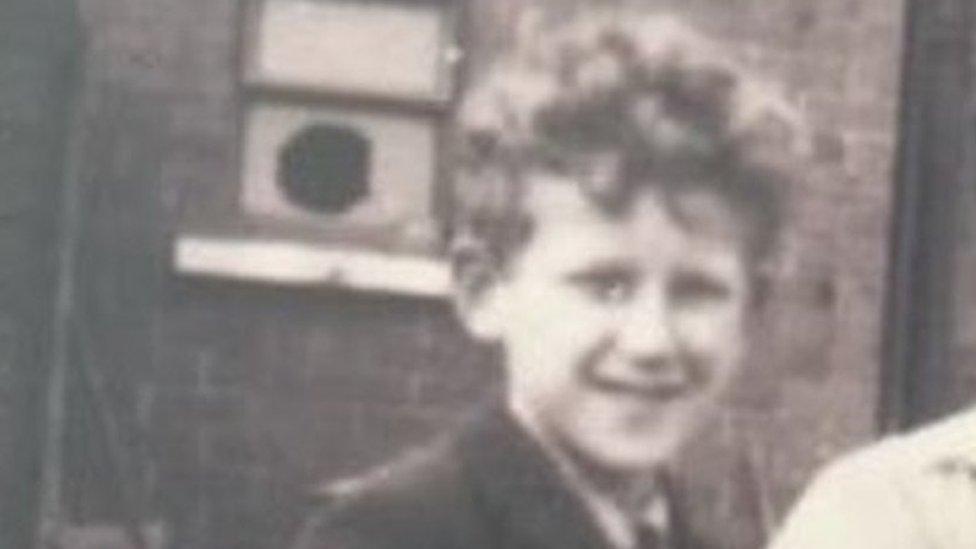
Paul Graham as a child
As part of the campaign, a memorial was erected in a Dublin graveyard in 2014 on the previously unmarked graves of more than 200 babies and infants from the home.
Many of them are understood to have died from ailments including TB and malnutrition.
A Church of Ireland spokesman said Bethany Home was owned and managed by the Dublin Prison Gate Mission, which it said was an "independent trust set up in the 19th Century to work with former prisoners" and was not owned by the Church of Ireland.
"In terms of pastoral outreach, the Church has always sought to listen to people in difficulty, including people from various homes and institutions.
"In the case of Bethany Home, the Church wrote to the Irish state on behalf of former residents, and asked that their story would be heard as part of the wider investigations being carried out by the state.
"The Irish state responded positively to the request and the home is therefore being considered as part of the remit of the Commission of Investigation into Mother and Baby Homes."
- Published26 October 2012
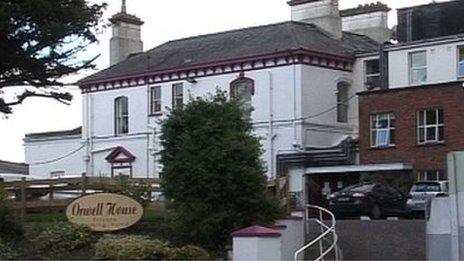
- Published23 October 2018
